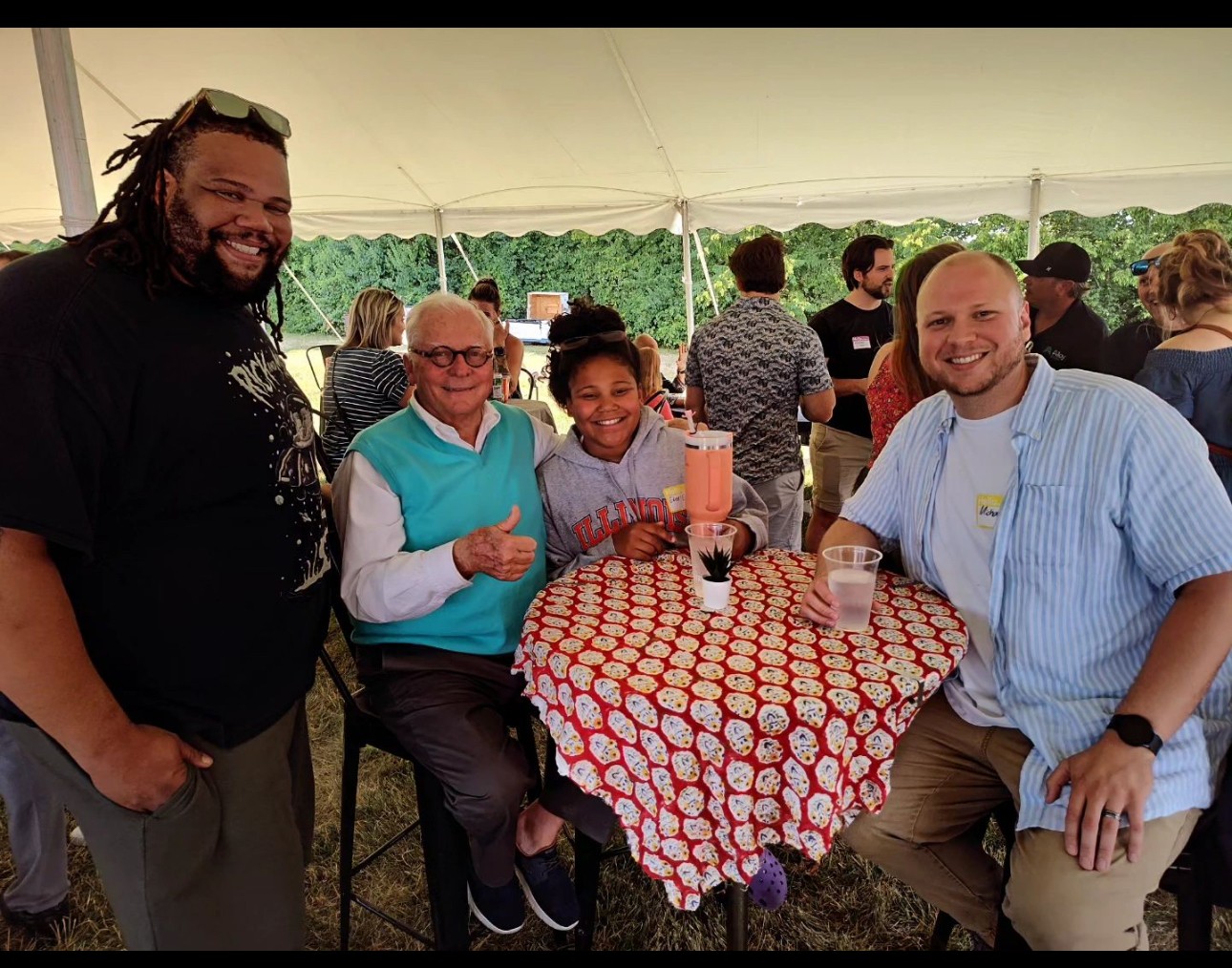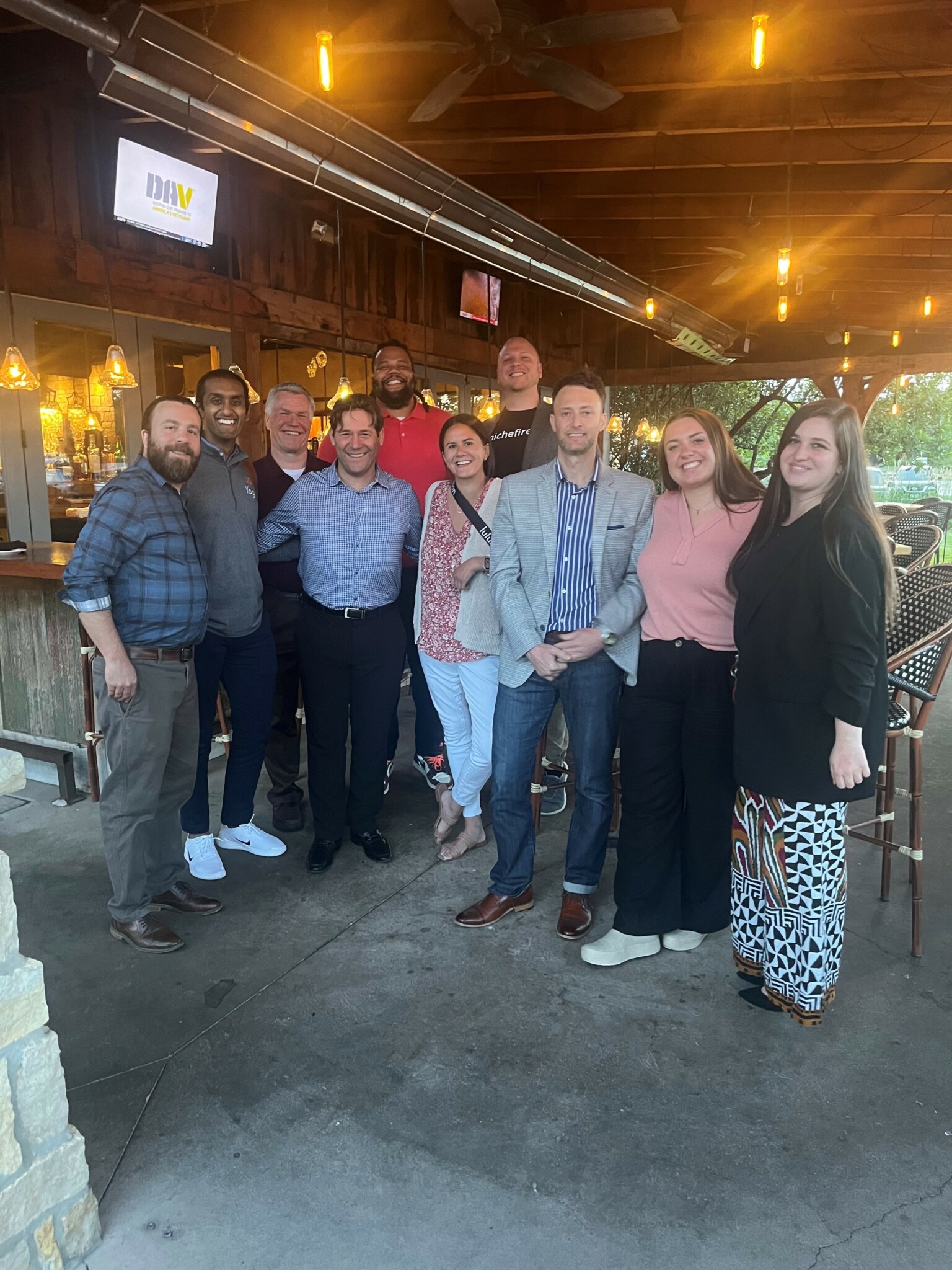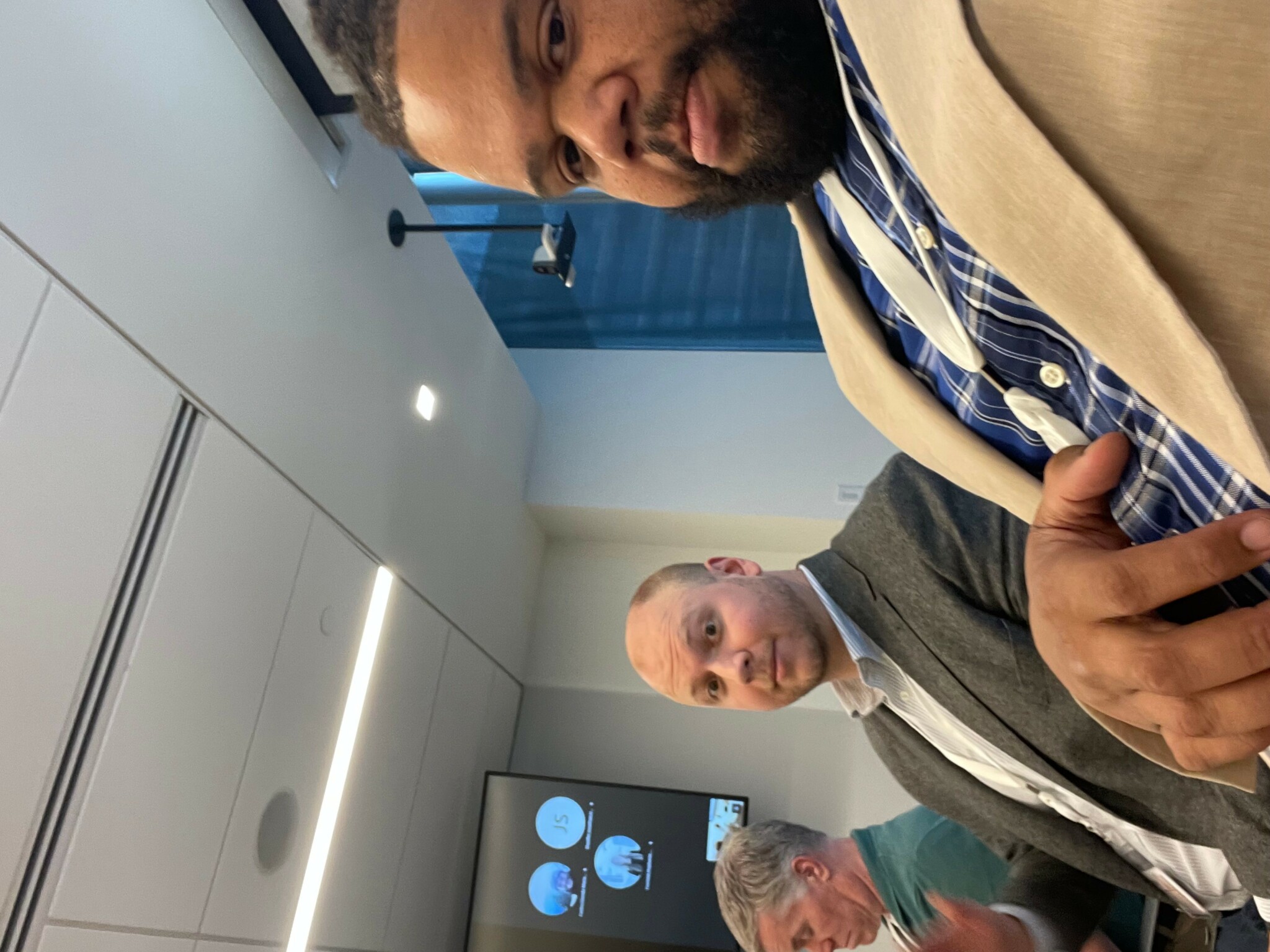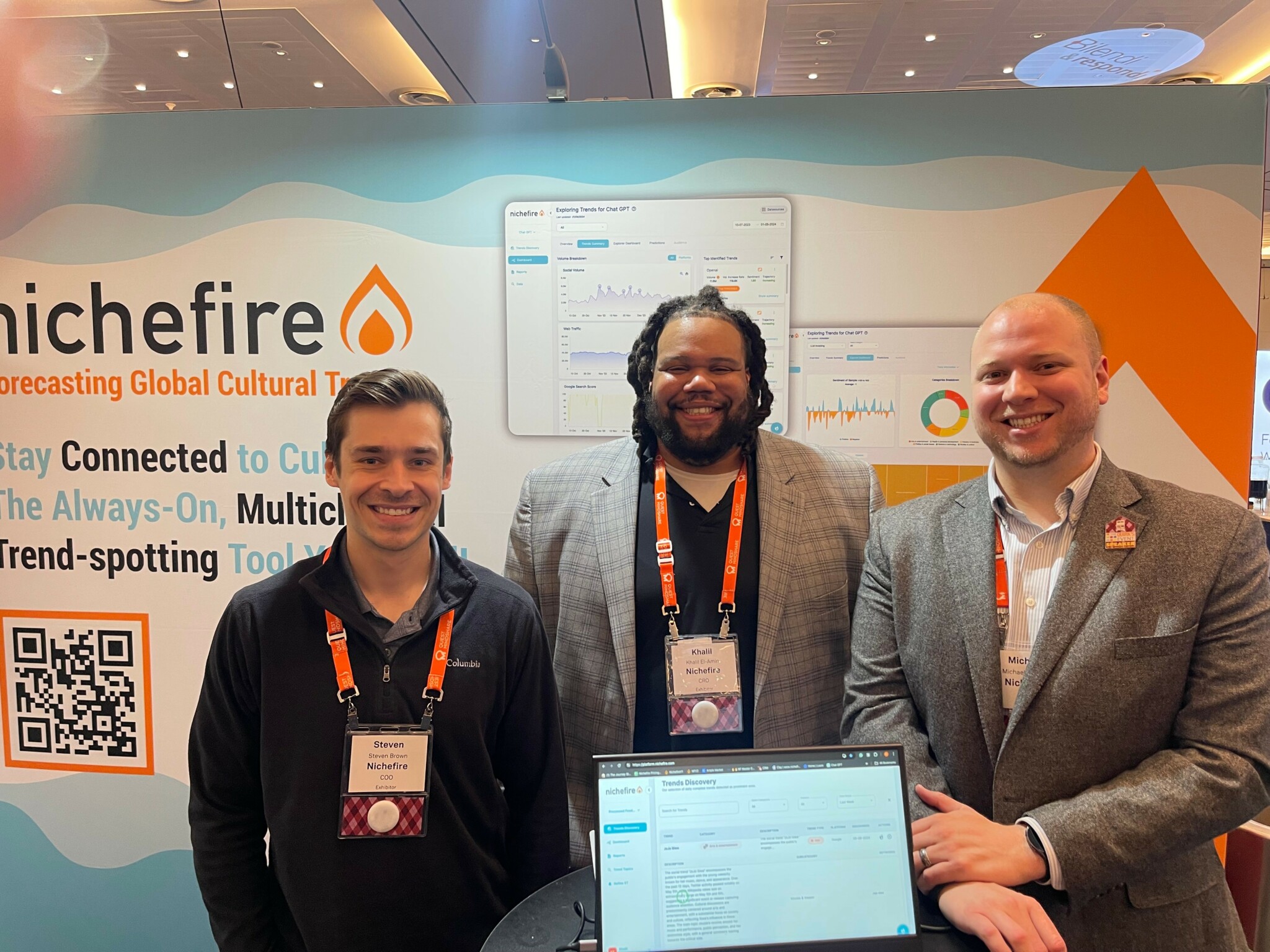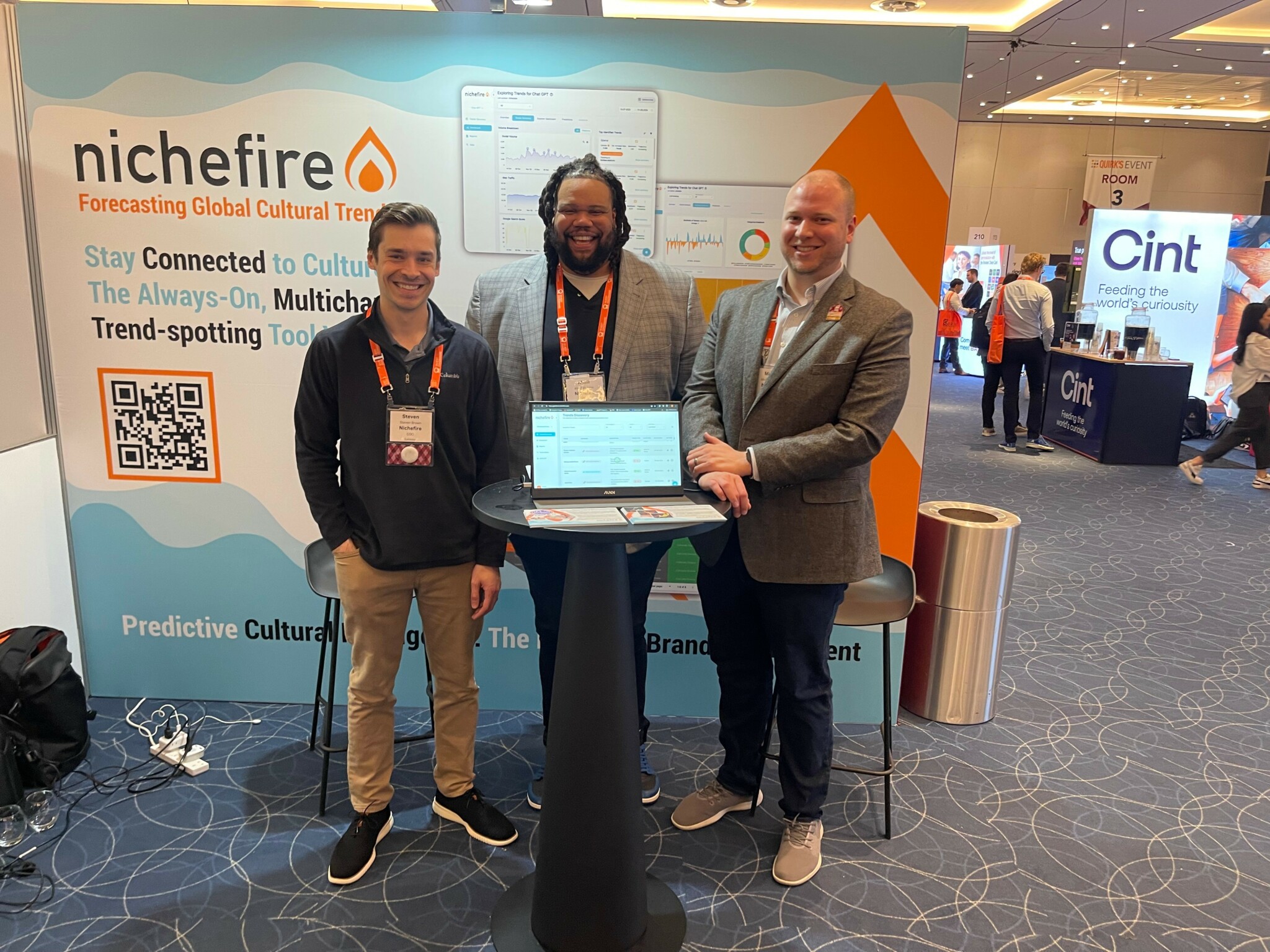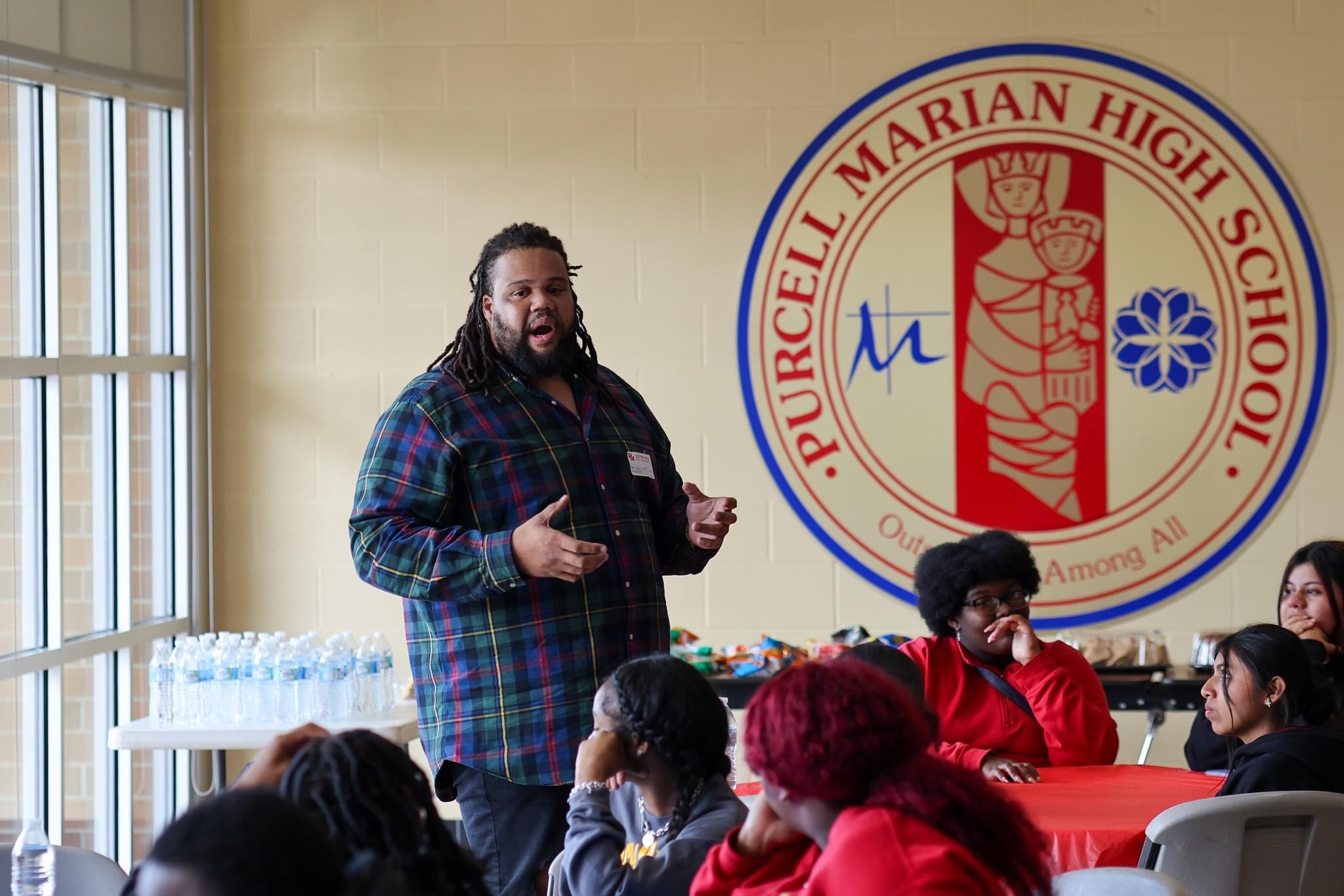We recently connected with Khalil El-amin and have shared our conversation below.
Hi Khalil, thanks for joining us today. Let’s start with a story that highlights an important way in which your brand diverges from the industry standard.
The standard approach to understanding trends and consumer conversations has been limited in two ways:
1. Syndicated Survey Data – While offering structured insights, these datasets are expensive and often outdated, refreshing only quarterly or annually. This delay makes it difficult for brands to respond to cultural shifts in real-time.
2. Traditional Social Listening – While useful for identifying known topical and category trends, it requires brands to already know what keywords or themes to track. But what about the trends no one is searching for yet? What happens when you don’t know what you don’t know?
This is where Nichefire is different.
We go beyond traditional methodologies by predicting emerging cultural shifts before they become mainstream. Instead of relying solely on known keywords, our AI-powered multi-channel Cultural Listening technology scans conversations across social media, search behavior, blogs, forums, and news to surface “unknown unknowns”—trends that would otherwise go unnoticed until they are too big to ignore.
Our clients use this foresight to develop culturally relevant products, create marketing campaigns that truly resonate, and mitigate risks before they become crises.
For example, one of our clients, a leading global brand, was able to spot a growing consumer movement around sustainability that traditional methods overlooked—allowing them to align their product innovation strategy ahead of competitors.
At Nichefire, we believe that reacting to trends isn’t enough—you need to anticipate them. That’s what sets us apart in an industry that has long relied on outdated approaches.
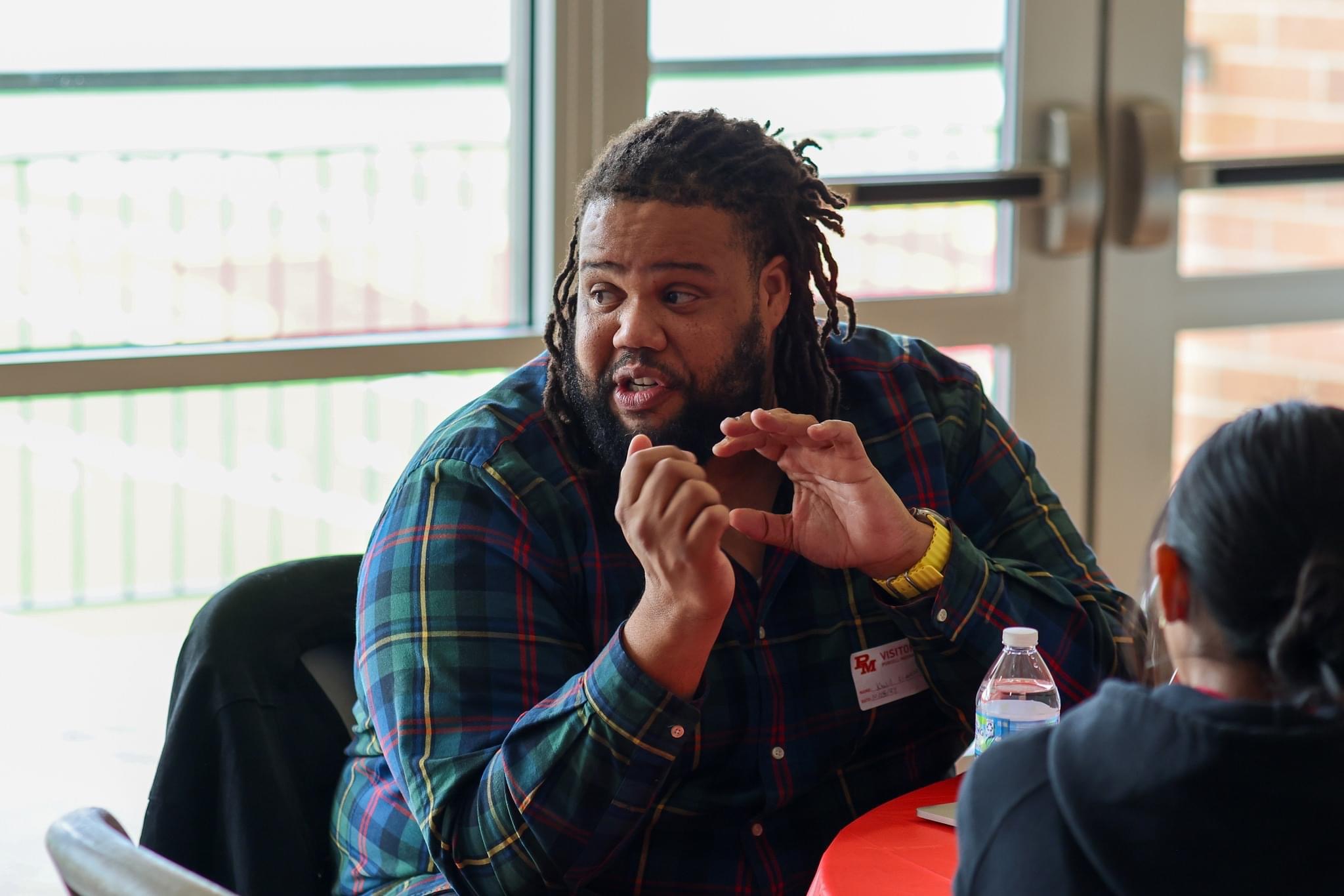
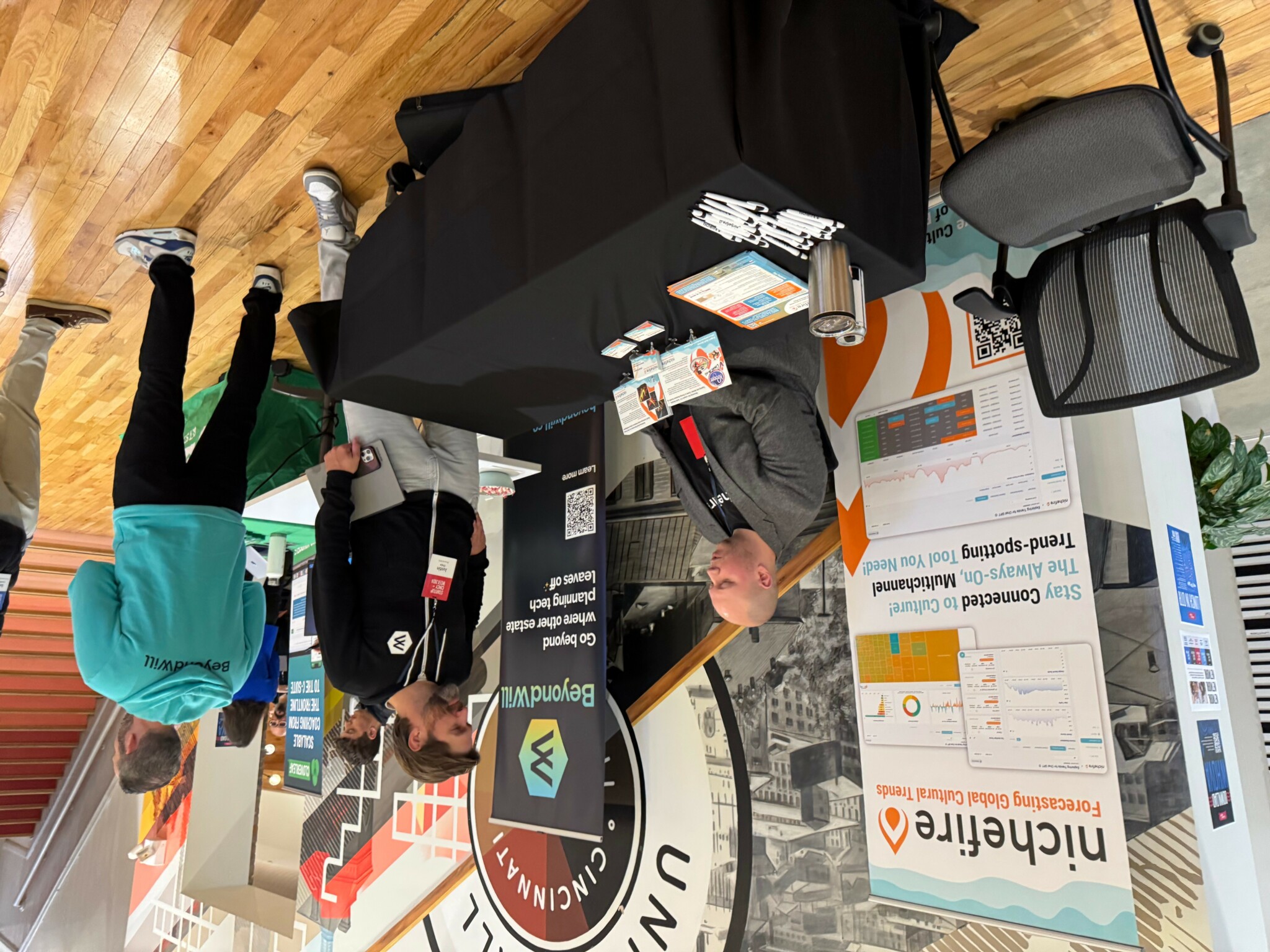
Awesome – so before we get into the rest of our questions, can you briefly introduce yourself to our readers.
My journey into cultural intelligence and predictive analytics was anything but conventional. It all started at a speed networking event—one of those awkward, transactional meetups where most conversations don’t lead anywhere. But then I spotted Michael, who had a University of Cincinnati portfolio, and since I’m an alum, I struck up a conversation. That small moment led to coffee a few weeks later and, eventually, the creation of our first digital marketing agency.
At the time, Michael and I had ideas about building a competitive analysis tool, but we continued running the agency until tax season rolled around. That’s when Steven Brown joined us, bringing financial and operational expertise to the table. We started exploring fundraising options, and during that process, we had a pivotal realization: instead of building an agency, we should be building a SaaS platform. Agencies are hard to scale, but a software tool could empower agencies and brands alike by giving them a true pulse on culture.
So, we shifted gears, abandoned the dream of making it big on Madison Avenue, and went all in on Nichefire.
Fast forward almost a decade later, and we’ve raised nearly $4 million in funding while marching toward product-market fit with some of the biggest brands in the world. Our team built a first-of-its-kind predictive cultural intelligence platform that helps companies identify emerging trends before they go mainstream.
What We Do & How We’re Different
Traditional approaches to understanding trends—like syndicated survey data and social listening tools—only show you what’s happening right now or in the past. But in today’s world, reacting too late can cost companies millions. We help brands see around the corner.
Using AI-powered cultural listening, we analyze conversations across social media, forums, news, search trends, and more to identify cultural shifts before they explode. This helps brands:
✔ Create new products that align with emerging consumer behaviors
✔ Craft campaigns that resonate with audiences
✔ Avoid reputational risks by understanding cultural sensitivities before making a move
We call this approach “predictive cultural intelligence”—giving businesses the foresight to act on trends before their competitors even notice them.
What I’m Most Proud Of
Building a company from nothing with two great co-founders and creating an entirely new category of intelligence is something I’m incredibly proud of. We started from a simple conversation at a networking event, and today, we’re partnering with some of the largest brands in the world.
More than just a business, we’ve built a team and technology that’s redefining how companies stay culturally relevant. And we’re just getting started.
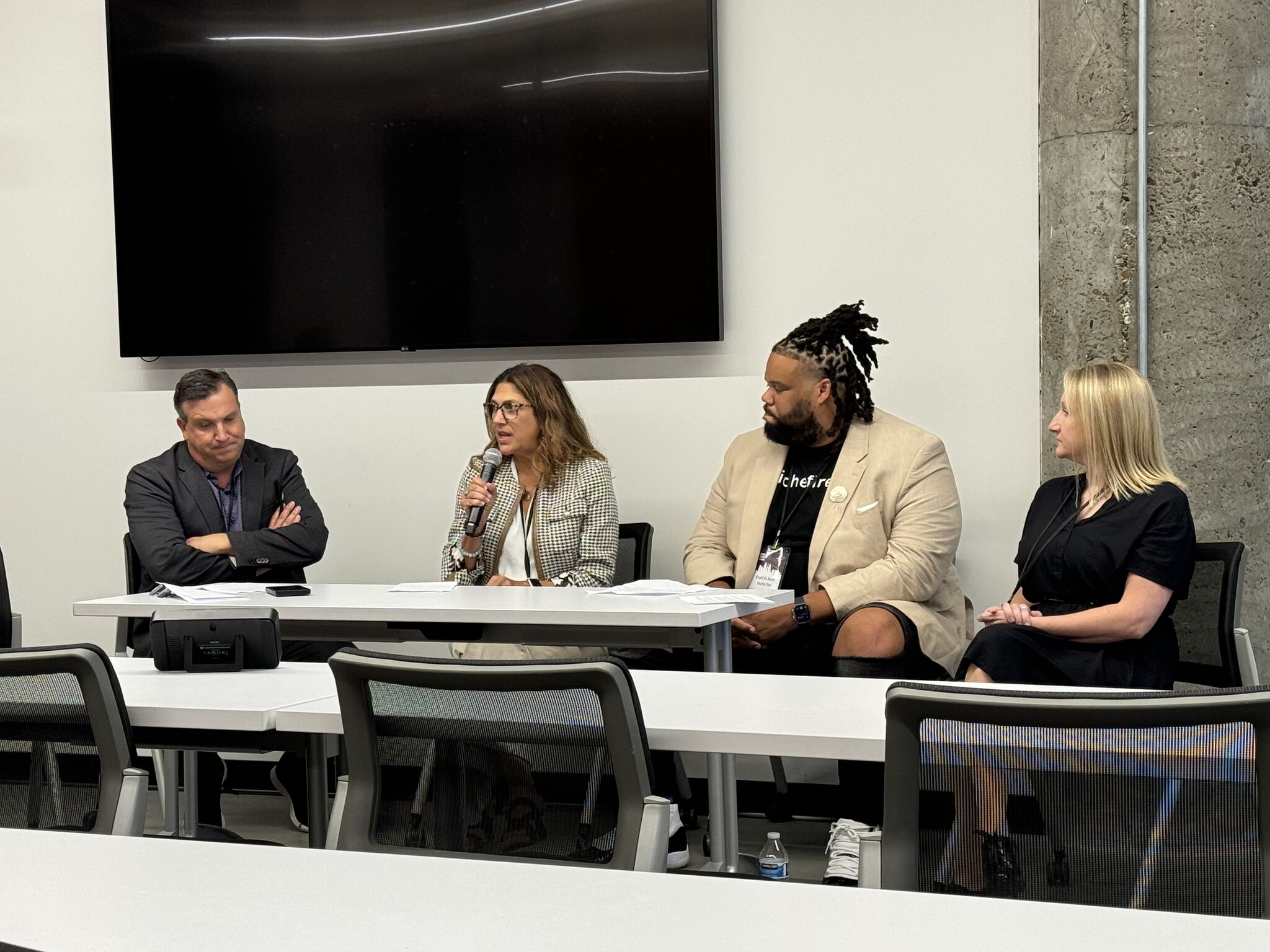
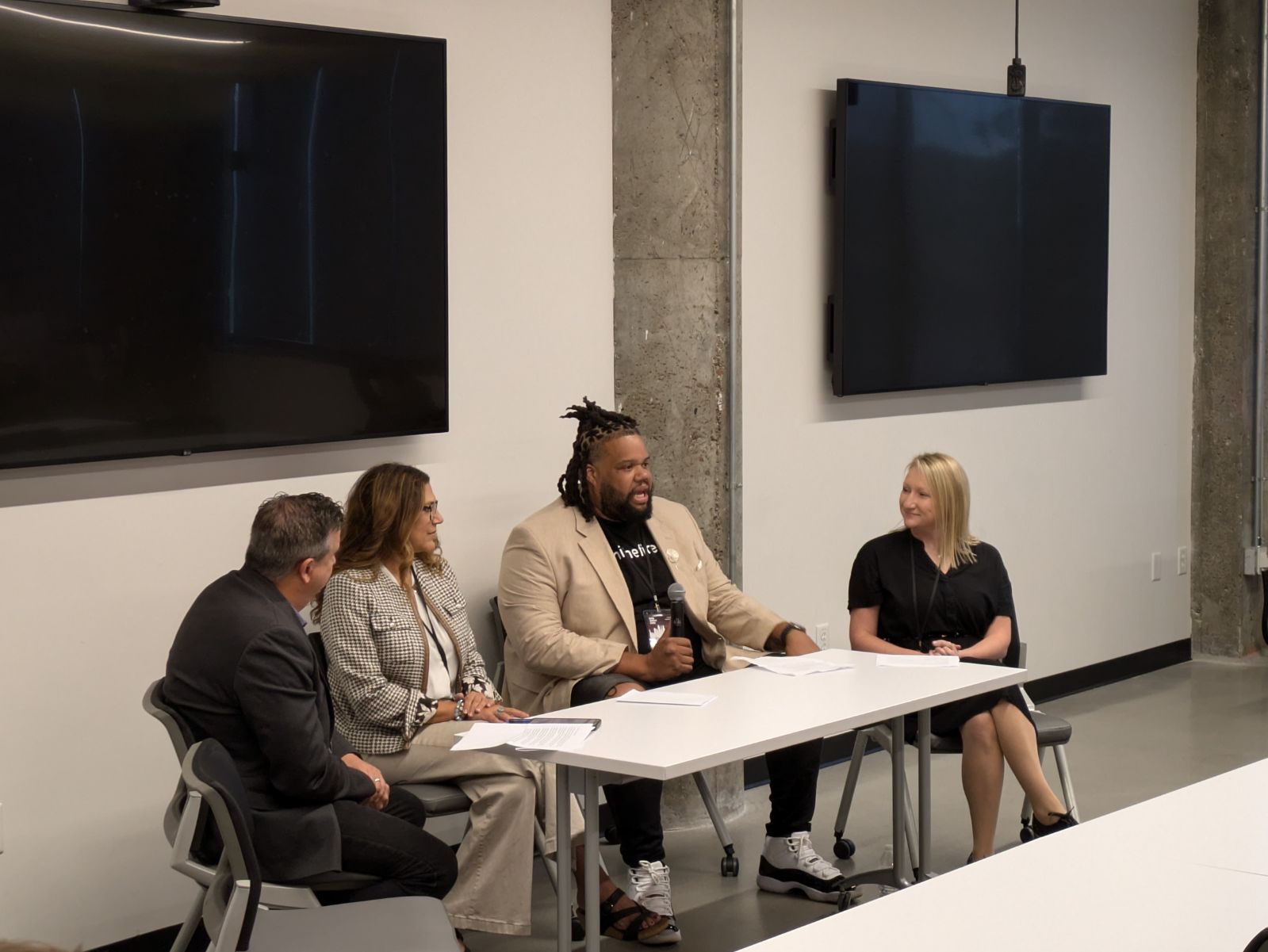
Can you share a story from your journey that illustrates your resilience?
You can’t talk about Nichefire without acknowledging the resilience that got us here.
We started in 2017 with no money—just an idea and a little bit of cash left over from our marketing agency. Fortunately, we scraped together some friends and family funding to build our first MVP, but after that, there was nothing. No safety net, no big investors—just a dream and the determination to make it work.
As founders, we had to find ways to support ourselves while keeping Nichefire alive. For me, that meant diving headfirst into the gig economy—driving for Uber, delivering groceries for Instacart, running DoorDash orders—whatever it took. Fifty-hour weeks behind the wheel, followed by another 50+ hours building Nichefire. Sleep was a luxury. Socializing? Almost non-existent. But that was the cost of chasing something bigger than ourselves.
And it wasn’t just me. All three of us—Michael, Steven, and I—had to make sacrifices. There were countless moments when we cut our own salaries down to nothing just to ensure our employees got paid. We became experts in scrappiness, resourcefulness, and self-reliance, learning how to stretch every dollar and figure things out on our own.
What makes me most proud isn’t just the grit it took to survive those years—it’s the fact that, after nearly a decade, the three of us are still together. That kind of long-term partnership is rare in the startup world. We’ve had every reason to walk away at different points, but we never did. We kept pushing forward because we believed in the vision, in each other, and in what Nichefire could become.
Resilience isn’t just about surviving the hard times. It’s about showing up, day after day, when no one is watching—when success is far from guaranteed—because you believe the work is worth it. And for us, it absolutely was.
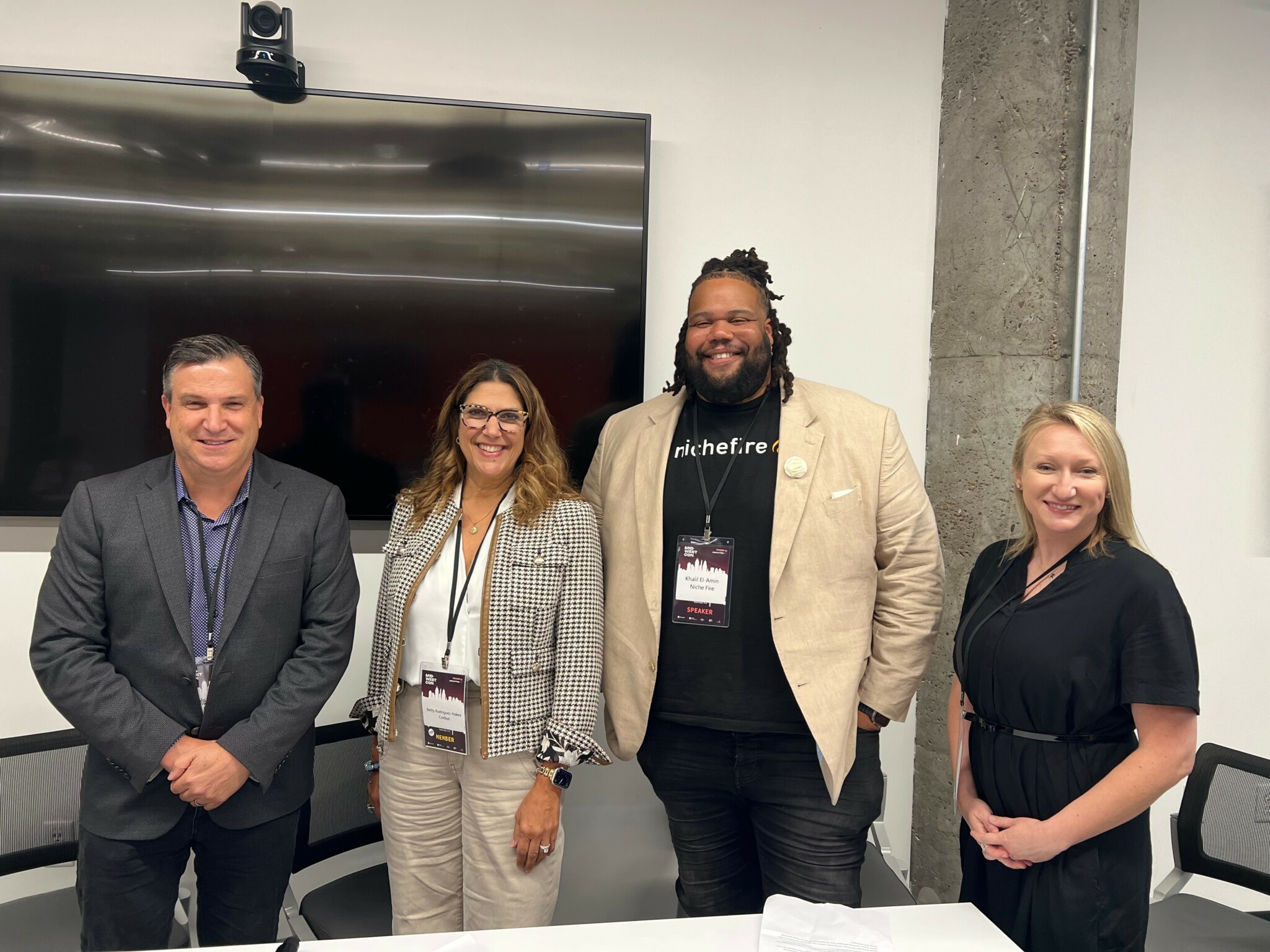
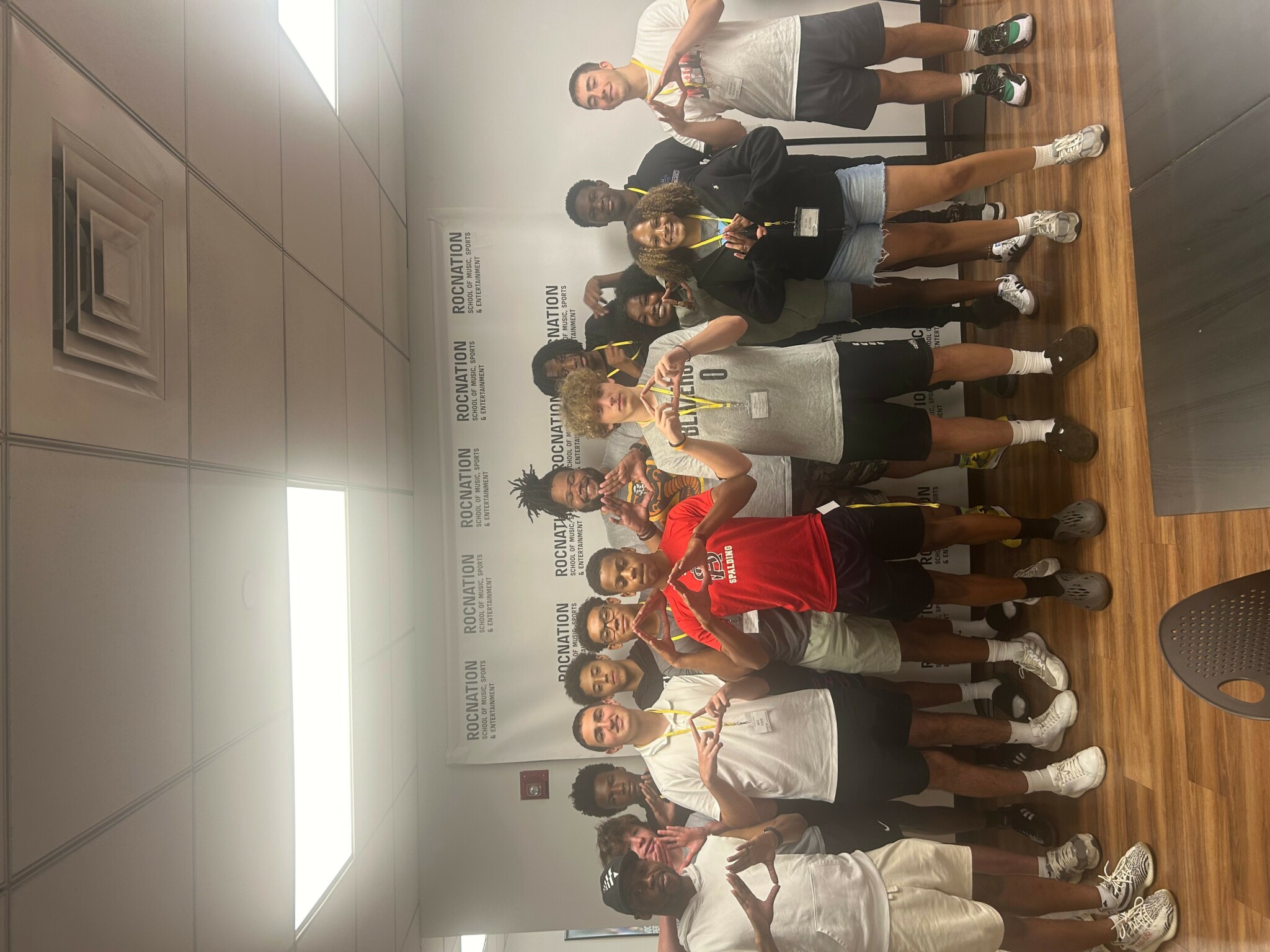
How about pivoting – can you share the story of a time you’ve had to pivot?
When we first launched Nichefire, our focus was on competitive analysis. We scraped together funding from friends and family, built an MVP, and showcased it at a University of Cincinnati Analytics Summit. At that event, our colleague was presenting on our behalf when we were approached by a major bank. Four weeks later, we had landed our first enterprise client—a huge milestone for us.
At first, things looked promising. We were able to expand within different departments of the bank, proving the value of our technology. But when we tried to gain traction with other organizations, we hit a wall. The pain point just wasn’t painful enough—our solution wasn’t solving a big enough problem across industries.
Then, in late 2019, we had a critical conversation with the market research team at that same bank. While they found our tech interesting, they didn’t need another competitive analysis tool. Instead, they told us something that completely reframed our thinking:
“If we had a tool that could help us identify what’s happening before it happens, that would be invaluable.”
At first, it sounded like they were asking for a crystal ball, but we understood the deeper insight—they wanted foresight, not hindsight. The world already had reactive social listening tools. What they needed was a way to uncover the unknown unknowns—the emerging trends that weren’t obvious yet.
That insight changed everything. Right before the world shut down in 2020, we made the decision to completely pivot Nichefire from competitive analysis to predictive cultural intelligence.
Surviving the Transition
Pivoting a business is never easy. We had years of financial history and credit built up under Nichefire, so it didn’t make sense to change our name and start over from scratch. Instead, we leaned on our existing credibility to secure non-dilutive funding through loans and grants—giving us just enough runway to stay afloat while we refined our new direction.
Once we had a solid grasp on our new cultural listening approach, we tested the concept with our industry connections and partners. The response was overwhelmingly positive—everyone agreed that cultural insights and trend prediction were far more valuable than traditional competitive analysis.
The Lesson: Pivot or Perish
The hardest part of pivoting wasn’t the technical shift—it was the emotional one. It’s easy to get romanticized about an idea—especially when it has already made you money. Walking away from something that had brought in hundreds of thousands of dollars wasn’t a simple decision. But the market will always force you to listen—or it will crush you.
We see companies all the time that cling to an idea that just isn’t working, burning through cash until they run out of gas. That could have been us. Instead, we made the difficult, scary, but ultimately best decision we’ve ever made—to follow the market, not fight it.
And now? That pivot has put us on the path to building a revolutionary technology that’s helping brands predict cultural shifts before they happen.
Sometimes, the best move isn’t to double down. It’s to turn in a new direction.
Contact Info:
- Website: https://www.nichefire.com
- Instagram: @Khalile513
- Linkedin: https://www.linkedin.com/in/khalilelamin?utm_source=share&utm_campaign=share_via&utm_content=profile&utm_medium=ios_app
- Twitter: @Khalile513
- Youtube: https://youtube.com/@nichefire5469?si=-AQZ5eP7UcfoADqw
- Other: Honeypot Podcast:
https://youtube.com/@honeypotpodcast?si=cFH84MdxUZmLPKW3
